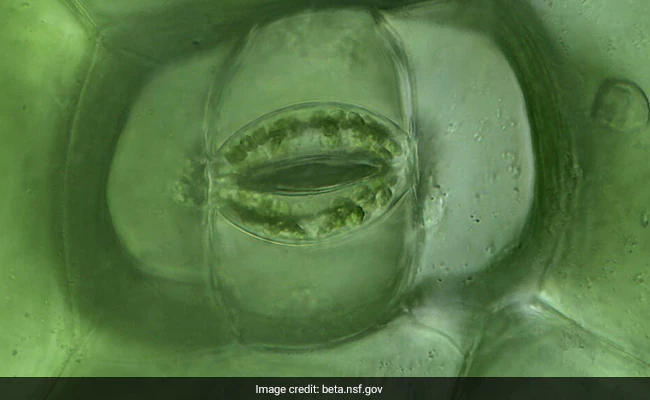The study detailing the discovery has been published in peer-reviewed journal Science Advances.
An incredible video shows plants “breathing” in real-time. The close-up clip has been captured by biologists at the University of California San Diego during one of their research projects, according to EarthSky. The researchers discovered how plants use their stomata – tiny openings found on almost all the flora – to exchange carbon dioxide and water with the air. The research was funded by National Science Foundation, which has released the video. Scientists said it is a “key breakthrough”, according to EarthSky, which will have implications on global food supply in the coming century.
Watch the video:
Julian Schroeder, the lead researcher, was quoted as saying by the outlet: “The researchers hope that harnessing this mechanism could lead to future engineering of plant water use efficiency and carbon intake. Critical as atmospheric carbon dioxide concentration continues to increase.”
“In fact, the researchers have filed a patent. And, they are examining ways to translate their findings into tools for crop breeders and farmers,” the biochemist added.
The study detailing the discovery has been published in peer-reviewed journal Science Advances.
“When stomata are open, the inside of the plant is exposed to the elements, and water from the plant is lost into the surrounding air, which can dry them out. Plants, therefore, must balance the intake of carbon dioxide with water vapor loss by controlling how long the stomata remain open,” said National Science Foundation spokesperson Jared Dashoff, as reported by New York Post.
The discovery is significant, considering the fact that atmospheric carbon dioxide concentration and temperature have increased due to climate change, affecting the balance between carbon dioxide entry and water vapour loss through the stomata.
If plants, especially crops like wheat, rice and corn, can’t strike a new balance, they risk drying out. The finding will enable researchers to edit those signals through which the stomata is opened so that the plants can strike the right balance between taking in carbon dioxide and losing water.


